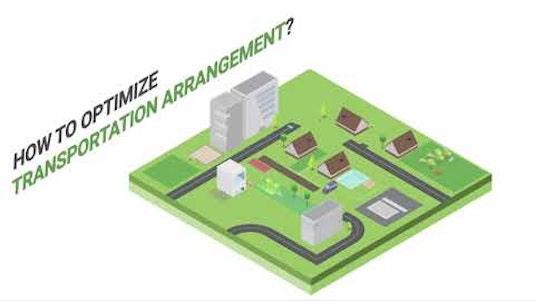
A-level Mathematics for Year 13 - Course 1: Functions, Sequences and Series, and Numerical Methods
Description
This course by Imperial College London is designed to help you develop the skills you need to succeed in your A-level maths exams.
The course is most appropriate to the Edexcel, AQA, OCR and OCR(MEI) papers. You will investigate key topic areas to gain a deeper understanding of the skills and techniques that you can apply throughout your A-level study.These skills include:
- Fluency – selecting and applying correct methods to answer with speed and efficiency
- Confidence – critically assessing mathematical methods and investigating ways to apply them
- Problem solving – analysing the ‘unfamiliar’ and identifying which skills and techniques you require to answer questions
- Constructing mathematical argument – using mathematical tools such as diagrams, graphs, logical deduction, mathematical symbols, mathematical language, construct mathematical argument and present precisely to others
- Deep reasoning – analysing and critiquing mathematical techniques, arguments, formulae and proofs to comprehend how they can be applied
Over seven modules, covering an introduction to functions and their notation, sequences and series and numerical methods testing your initial skillset will be extended to give a clear understanding of how background knowledge underpins the A-level course.
You’ll also be encouraged to consider how what you know fits into the wider mathematical world.
Tags
Syllabus
Module 1: Algebra and Functions
- The difference between a mapping and a function
- Function notation
- Domain and range of a function
- Composition of functions
- Inverse functions
Module 2: Sequences and Series 1
- How to define a sequence by an nth term rule
- How to define a sequence by an inductive rule
- Arithmetic sequences
- Geometric sequences
- The sum of n terms of an arithmetic and a geometric sequence
- Series and the sigma notation
Module 3: Sequences and Series 2
- The binomial expansion for positive integer n
- The general binomial expansion
- Properties of sequences
Module 4: Trigonometry 1
- Radian measure
- Circle calculations
- Small angle approximations
- Circular functions
Module 5: Trigonometry 2
- The reciprocal trigonometric functions
- Inverse trigonometric functions
- Addition and double angle formulae
- Trigonometric identities
Module 6: Numerical Methods 1
- An introduction to numerical methods
- The trapezium rule
- Numerical solution of equations
Module 7: Numerical Methods 2
- The Newton-Raphson method
- Fixed point iteration

A-level Mathematics for Year 13 - Course 1: Functions, Sequences and Series, and Numerical Methods
-
TypeOnline Courses
-
ProviderEdX
This course by Imperial College London is designed to help you develop the skills you need to succeed in your A-level maths exams.
The course is most appropriate to the Edexcel, AQA, OCR and OCR(MEI) papers. You will investigate key topic areas to gain a deeper understanding of the skills and techniques that you can apply throughout your A-level study.These skills include:
- Fluency – selecting and applying correct methods to answer with speed and efficiency
- Confidence – critically assessing mathematical methods and investigating ways to apply them
- Problem solving – analysing the ‘unfamiliar’ and identifying which skills and techniques you require to answer questions
- Constructing mathematical argument – using mathematical tools such as diagrams, graphs, logical deduction, mathematical symbols, mathematical language, construct mathematical argument and present precisely to others
- Deep reasoning – analysing and critiquing mathematical techniques, arguments, formulae and proofs to comprehend how they can be applied
Over seven modules, covering an introduction to functions and their notation, sequences and series and numerical methods testing your initial skillset will be extended to give a clear understanding of how background knowledge underpins the A-level course.
You’ll also be encouraged to consider how what you know fits into the wider mathematical world.
Module 1: Algebra and Functions
- The difference between a mapping and a function
- Function notation
- Domain and range of a function
- Composition of functions
- Inverse functions
Module 2: Sequences and Series 1
- How to define a sequence by an nth term rule
- How to define a sequence by an inductive rule
- Arithmetic sequences
- Geometric sequences
- The sum of n terms of an arithmetic and a geometric sequence
- Series and the sigma notation
Module 3: Sequences and Series 2
- The binomial expansion for positive integer n
- The general binomial expansion
- Properties of sequences
Module 4: Trigonometry 1
- Radian measure
- Circle calculations
- Small angle approximations
- Circular functions
Module 5: Trigonometry 2
- The reciprocal trigonometric functions
- Inverse trigonometric functions
- Addition and double angle formulae
- Trigonometric identities
Module 6: Numerical Methods 1
- An introduction to numerical methods
- The trapezium rule
- Numerical solution of equations
Module 7: Numerical Methods 2
- The Newton-Raphson method
- Fixed point iteration
Related Courses


Foundations of Data Science: K-Means Clustering in Python

Estadística y probabilidad: principios de Inferencia

Laboratorio di Matematica per Architettura

Foundations of Cryptography

External Debt Statistics

Operations Research: an Active Learning Approach

Selected Topics on Discrete Choice

Statistics For Data Science

Foundations of Machine Learning

PSAT Prep: Help and Review


 Online Courses
Online Courses  EdX
EdX
